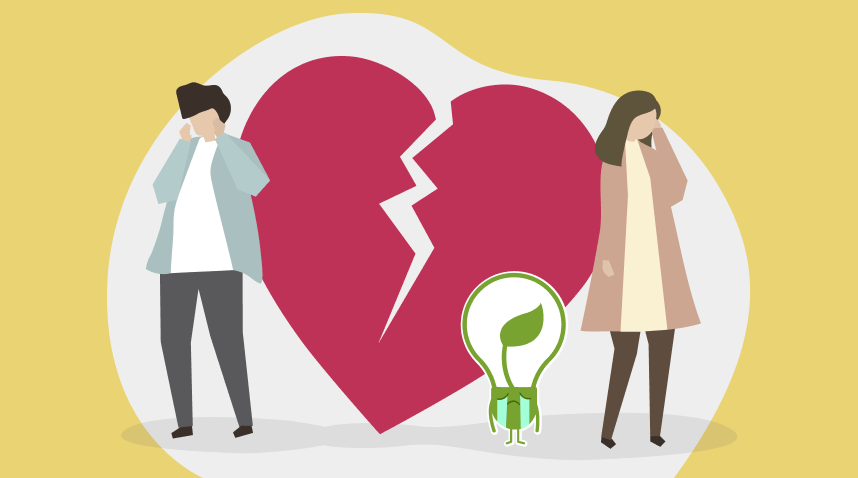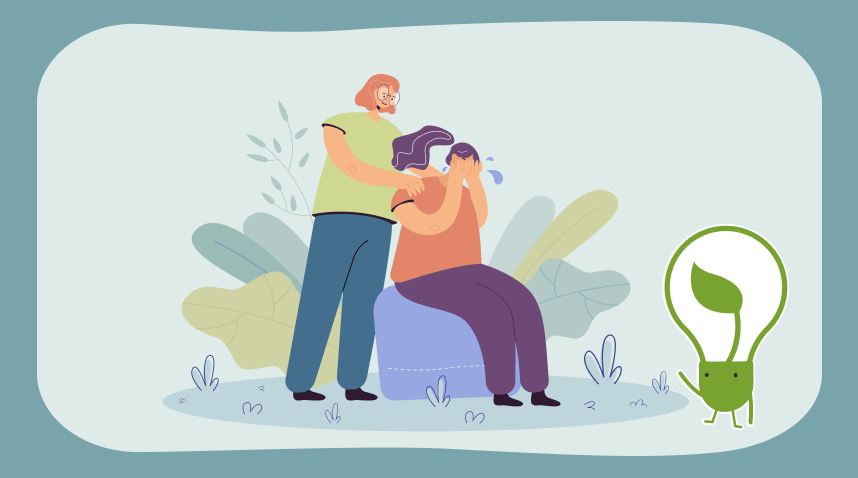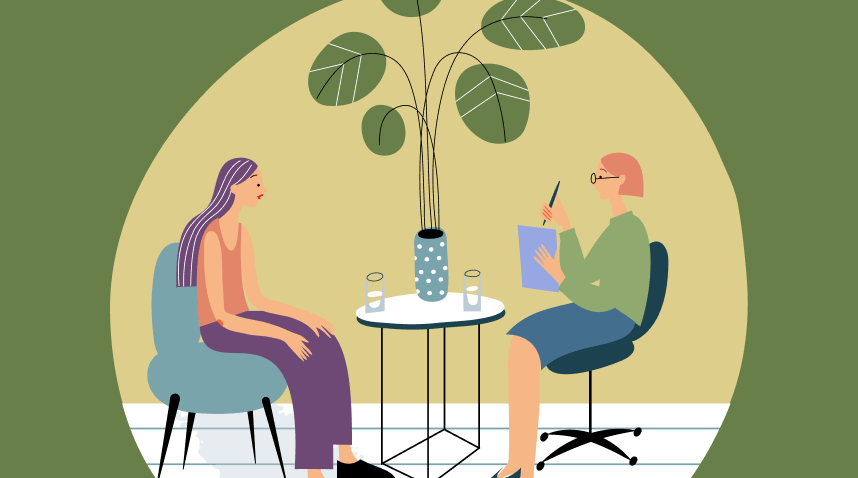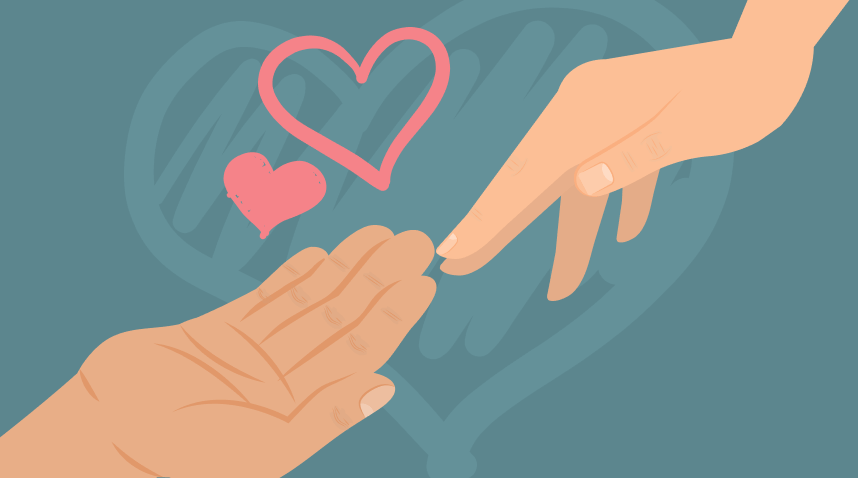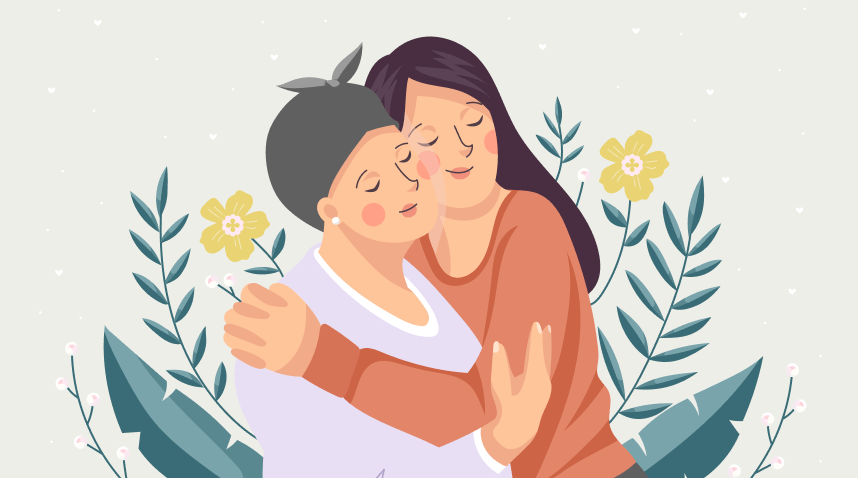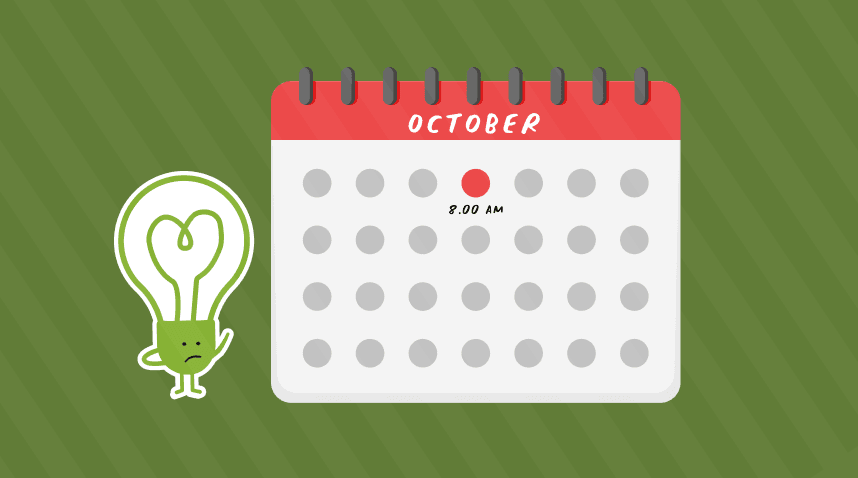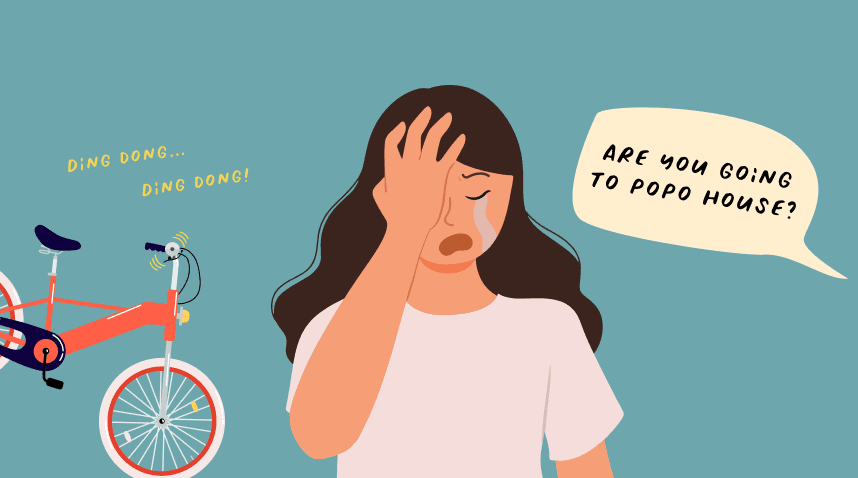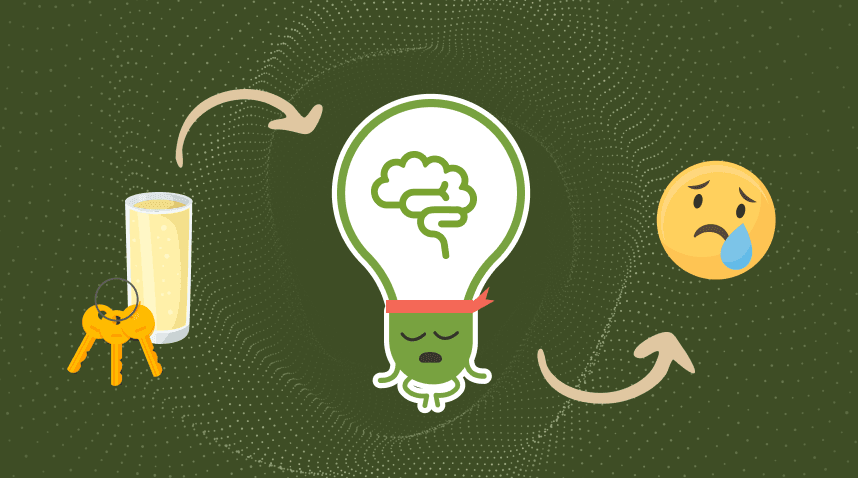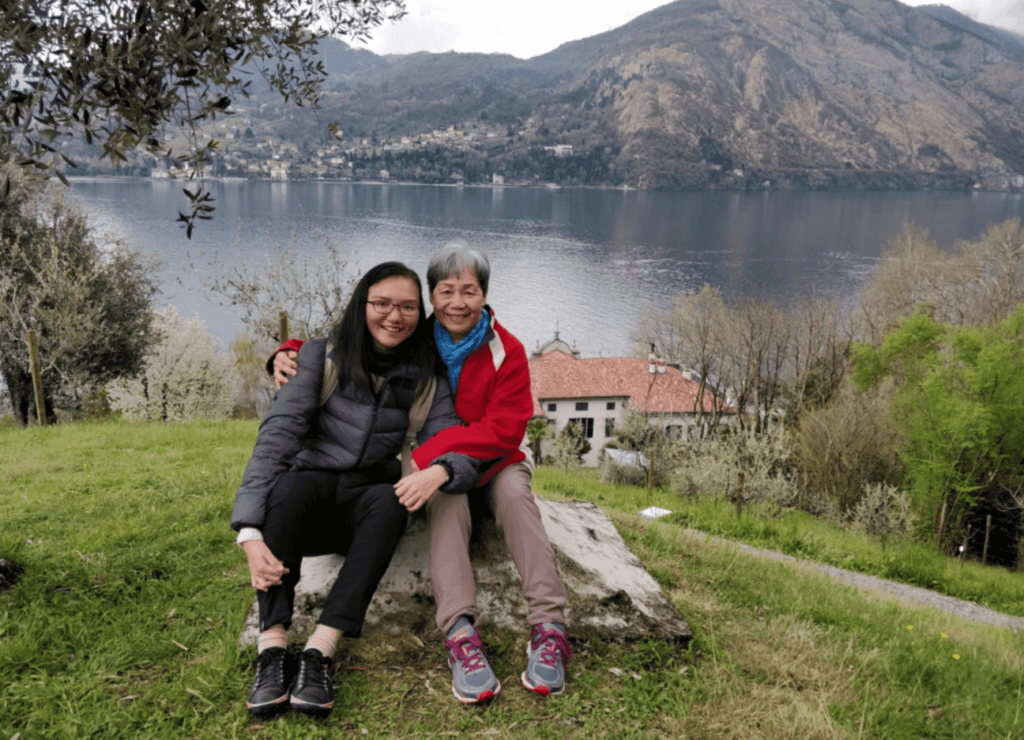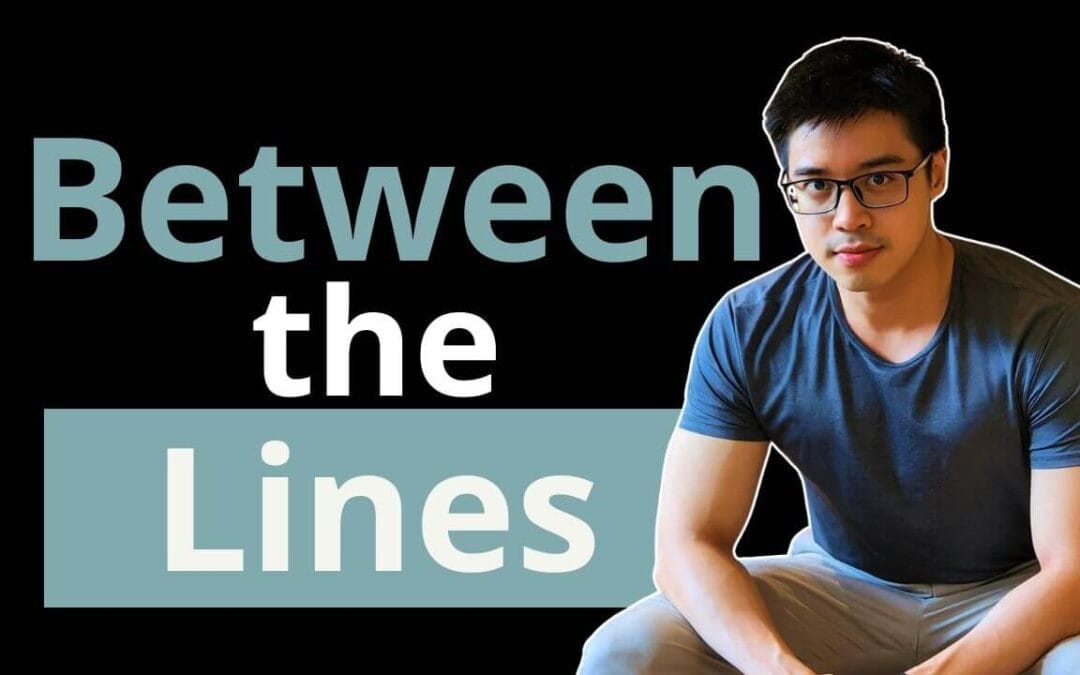
Ep 50: Between the Lines ft. Heng Yeh
Summary
Join us in this conversation between Cheryl and Heng Yeh —an award-winning poet, writer, and translator ✍️, as we discuss grief using poetry as a means to unpack the nuances. The conversation feels like peeling an onion , unfolding the layers of this complex human experience, and we hope you take a ride with us on your morning or evening commute!
We talk about grief 😢, pain 💔, loneliness 😔, and everything in between.
There’s a little bonus 🎁 at the very end, so make sure you don’t miss that 😉
About the Speaker
Yee Heng Yeh is a writer, translator, and poet from Malaysia. His poetry has appeared in various publications and was twice nominated for the Pushcart Prize. He also contributes to Penang Monthly, writes for the theatre, and runs workshops. Last year, he did a residency in Rimbun Dahan and was a Writing Fellow at A Public Space. He is currently the poetry editor of NutMag, a Penang zine.
Key Takeaways
Poetry as a Tool for Healing Grief:
Heng Yeh describes how poetry provides a safe space to express and process grief when other forms of support feel inadequate. By offering a shared emotional language, poetry helps people connect and navigate the isolating nature of loss.
Grief’s Impact on Identity:
The loss of a loved one can deeply affect an individual’s sense of self, particularly if the person played a key role in shaping their identity. Cheryl and Heng Yeh discuss how healing involves redefining one’s relationship with the deceased and adjusting to a new reality.
Living with Impermanence:
The conversation reflects on Buddhist teachings about impermanence, emphasising that understanding the inevitability of loss allows for deeper presence and acceptance in life. Embracing impermanence helps people cope with grief and find meaning in the process.
Transcript
Full Transcript
[00:00:00] Cheryl: Welcome to the Handful of Leaves podcast. My name is Cheryl and today we have Heng Yeh, who is a writer, translator and poet from Malaysia. His poetry has appeared in various publications and was twice nominated for the Pushcart Prize.
He also contributes to Penang Monthly, writes for the theatre and runs workshops. Last year, he did a residency in Rimbun Dahan and was a writing fellow at A Public Space. He’s currently the poetry editor of Nutmeg Penang . Heng Yeh is one of my closest friends, and I’m so excited to have him here to discuss with me the topic of grief.
Welcome, Heng Yeh how are you feeling?
[00:00:47] Heng Yeh: Hello, a bit nervous, but feeling good and excited about the discussion that we’ll be having.
[00:00:52] Cheryl: I’m very glad that this time we will have the opportunity to listen to his poem at the end of this episode. So stay tuned to hear his masterpiece.
Grief is a very, delicate topic. And as Heng Yeh and I was discussing how to go about this, we feel that we should start with a poem, and then slowly discuss nuances and aspects of grief, hopefully we can learn from this sharing experience.
[00:01:17] Heng Yeh: We have poems because, it helps us connect to other people’s experiences of this very universal feeling.
[00:01:24] Cheryl: Let me share this poem with you. The poem is When I Am Asked by Liesel Muller. When I am asked how I began writing poems, I talk about the indifference of nature. It was soon after my mother died, a brilliant June day, everything blooming.
I sat on a grey stone bench in a lovingly planted garden, but the day lilies were as deaf as the ears of drunken sleepers and the roses curved inward. Nothing was black or broken, and not a leaf fell, and the sun blared endless commercials for summer holidays.
I sat on a grey stone bench, ringed with the ingenue faces of pink and white impatiens, and placed my grief in the mouth of language, the only thing that would grieve with me.
[00:02:19] Heng Yeh: I think when I first read it, I had already started writing poems then, it definitely resonated in the sense that sometimes when there’s no one or nothing, you feel like you can turn to, poetry is like the outlet, or the place where you can capture or allow an emotion to exist. In the, Liesel Mueller’s poem, she talks about , language being the only thing that grieves with her , but language actually also means humanity because , humans are the ones who come up with language, even though on the surface, the poem looks like she is feeling very isolated. I think she actually also finds comfort in the fact that it is a shared experience, right? And people have talked about it before. And that’s why language is one of the bridges or, you know, art in general that helps us connect to this, to this realization that we are not alone, when it comes to this.
When I was reading, I was like, Oh, that’s so true. You know, sometimes some of the poems I write also has this similar purpose, I guess you could call it. How did you feel reading about it? Especially, if you don’t usually read a lot of poetry, what do you feel about it?
[00:03:27] Cheryl: I Think what I felt from this was the author sense of loneliness. As she experienced the death of her mother, yet at the same time, the world moved on. And I think that’s very much, an accurate description of grief where your heart could be broken into a million pieces. Then you know, the day still turns into nights and life continue to move on.
[00:03:55] Heng Yeh: There are many types of grief, right? The death of a loved one, relationship ends or friendship ends, that’s a kind of grieving. Sometimes you grieve for maybe chances you didn’t take..
So there’s always a, a kind of sense that You’ve lost something forever, right?
It’s a kind of a feeling of permanence in the loss, right? That is what makes it , so heavy. And I really love what you pointed out about the persona in the poem that this kind of paradox in your heart .The world should stop, but somehow it still moves on. There’s a very famous poem by Auden that has the line, “stop all the clocks because his loved one has, has died.” it’s a recurring feeling that people have in grief.
[00:04:40] Cheryl: Grief is the natural response to bereavement And when you talk about the different types of grief, I think why it hits so deeply is because a person or people close to us that we grieve for usually has an impact on our sense of identity. They give us something. So for example, a safe haven in relationships, the idea of a self esteem coming from parents, when from young, they constantly validate you, then you have this sense of self or like, I am a good person, bad person.
I’m funny. I’m whatever. So when we lose this person, then our identity just becomes so uncertain. It becomes a huge shock of like what am I? Who am I?
[00:05:22] Heng Yeh: I really like what you said about the identity because that person was such a big part of our lives, and how we perceive ourselves that losing them was also losing a part of ourself. In life, you know, we have so many different relationships, but we always show a slightly different version of ourselves to that specific person so only that person knows us in that way. And it could be a parent, a friend or a lover or even an acquaintance. Sometimes when you lose that person, you don’t even realize what you’re losing yet, but it’s only after time that you kind of realize that, “Oh, I have not been able to show this side of myself” or this side of myself only comes up when I was with them. Now that that is not happening anymore, then you feel that absence almost.
Have you had any sort of experiences like that?
[00:06:13] Cheryl: Definitely, when losing a best friend, due to the normal circumstances of life, either I change, the person change or we change, right? And sometimes I would reminisce or I would just be nostalgic about the idea that, Oh, I don’t really get to be so open about certain things that I only share exclusively with this person.
And I don’t have that opportunity anymore. So that what that person provided to me is just taken away from the normal process of changing and so the interesting thing is that yes, that happens, but then that changes too. I start to form friendships, relationships with other people, and I am then able to bond in a similar way of intimacy as I have used to with the person again, and there’s a kind of renewed optimism towards life.
If you look into the process of grieving is first, of course, the acceptance of the loss, like in my example, like the loss of a friendship, but the second thing is about accepting the consequence of the loss. So what losing intimacy or that space to just be yourself and share exclusive things means to you. You need to accept that consequence. After that, we have to change the relationship to the person we lost. The death of a stage of life means a birth of a new stage of life. Meaning the death of a relationship could also mean the birth of a new friendship.
[00:07:44] Heng Yeh: Being a kind of adult that now has to navigate the world without parental guidance.
[00:07:51] Cheryl: Or even a sense of like finding parental figures in other people, right. Being more open to teachers and guides in other places. And as we go through this process of grief, a very important milestone to hit in the process of grieving is the restoration of the capacity to thrive again in life.
So that’s where I feel I processed a friendship where it’s fine if I don’t share this part of myself, I could express myself in other ways. And explore again, start to explore the world, start to explore new friendships. And then that helps me to look into the future with more optimism and happiness, which is kind of the baseline state before the grief happened.
[00:08:29] Heng Yeh: I want to pick up on things that you mentioned there, which is the point that your relationship to the person you’re grieving changes, throughout the grief and after the grieving. A lot of the times when we build relationships, we are building them in the future, right?
We are thinking of this relationship in terms of being something that will accompany us throughout the foreseeable future or even a lifetime. When that is lost you lose an entire future that you have been building up with your head.
You have to stop becoming attached to that future and come back to the present. That future is, non existent anymore. It’s a reckoning of the fact that this life that you created in your head, will not be able to happen.
[00:09:14] Cheryl: I think every person will have a set of beliefs, assumptions about the world. And one is that life will be constant and it, we need to have this assumption because it helps us to then have structure and help us to make sense of the world.
So when you assume that a life is constant, then you can plan for the future. you’re going to have kids going to, whatever, whatever. Then, you know, we can have the strategies to make that successful. So when things don’t go according to plan, then that gets shaken up. We are essentially moved from constancy to uncertainty. That our whole world just we need to find constancy again. And on the psychological level, that is what our brains are constantly trying to do, right? Getting us back to a place of safety, which is a place of certainty.
But if we look into the Buddha’s teachings. He has said all condition things are uncertain. So no matter where you put your refuge in, in any temporary refuge that could give you a sense of stability, it is only merely an illusion, but what would be a better way to look at the world, is to try your best to understand impermanence in every condition thing.
[00:10:28] Heng Yeh: I think this is a kind of question that I’ve always been grappling with. How do you hold that knowledge or try to hold that understanding, everything is uncertain.
Everything is impermanent. But then, still go about your day and then like, Oh, you have to send an email. There’s a deadline, right? How to not let it, Negatively affect maybe your relationships with people because there are some people, because they are so afraid of experiencing loss, that they don’t allow themselves to love or be loved right on like a deep level.
[00:10:57] Cheryl: Do you feel that’s you?
[00:10:57] Heng Yeh: No, I hope that’s not me. Oh, I try not to be that.
[00:11:00] Cheryl: So how do you try not to be right? Like, I’m just putting back your question to you.
[00:11:04] Heng Yeh: Yes. So I saw a quote on social media that I feel like it’s been bouncing around for quite some time. Cause I was trying to find the original source, but I couldn’t.
But it’s basically, don’t borrow grief from the future. , I was like, wow, so powerful. The idea is that yes, you can acknowledge that it will be all these relationships and people, and the material world is impermanent and filled with uncertainty.
But at the same time, it doesn’t mean that just because of that, I should cut off everyone and I shouldn’t let myself feel things but it’s just to enjoy the present moment, like not being attached to the future, because even if you’re attached to a future of loss, that is still a future that you’re attaching to.
So to just come back to the present and really enjoy what is there and appreciate it, and knowing that it is impermanent, in fact can help you deepen your appreciation as opposed to scaring you away from it, and to just embrace that it’s just, part of life, to have to go through these feelings.
[00:12:06] Cheryl: I completely agree with you because the idea of running away, detaching yourself from feeling emotions or likes and dislikes, I think that stems from ignorance or just stems from wrong view, because you are trying to run away from the inevitable.
I feel the more balanced approach is aligning yourself with the right view and the right view being that this is part of life. This grief is part of life. It is the result of everything being conditioned to destruction, everything being conditioned to change and everything being conditioned to the kind of breaking apart that we have to experience. And then I think that is true equanimity where you see things with right view and then you accept them rather than seeing things with wrong view and try to run away from everything.
And then I don’t know where you go and hide from life suffering because there’s no way you can hide from it. Right.
[00:13:03] Heng Yeh: Yeah. So true.
[00:13:05] Cheryl: It’s very interesting how the Buddha balanced this as well, where we still have to live in the world yet at the same time we need to align ourselves to right view.
In the Buddha’s time, there was this king, Pasenadi who loved his Queen Malika very, very much. So one day he was just chilling with the Buddha. Then his assistant came and say, Oh, your Queen Malika has died. And then he was very, very heartbroken because he loved her very much.
And so lucky him, the Buddha was there, so the Buddha was there to advise him. I would summarize this.
[00:13:37] Cheryl: The first part is the Buddha reminded him this, he says, that what is subject to aging will have to age.
What is subject to illness will become ill and what is subject to death will die. What is subject to ending will end and what is subject to destruction will be destroyed. And in each of these statements, the Buddha emphasized that no one, not even contemplatives Brahmans, the Devas, Maras, and Brahmas, which are like quite big gods or anyone else in the world can prevent these processes from occurring.
And this really underscores the Buddha’s concept of impermanence and the futility of clinging to these things.
And then the Buddha talk about two kinds of people. So the kind of people who are like run of the mill, uninstructed, basically just like me.
[00:14:23] Heng Yeh: Like us
[00:14:25] Cheryl: He said, okay, so these people, then when they experience this kind of change, you know, when their loved ones die, they respond with negative emotions, sorrow, grief, lamentation, and distress, and leads to harmful consequences, which is like their appearances change, they look ugly, they lose their appetite, and then they neglect their responsibilities and this pleases their enemies and worries their friends.
When he used this term “uninstructed run of the mill” it’s very interesting, because it also implies that, yes, most people react this way, but there is an alternative, which is, then he shows the alternative, which is that the noble ones who practice, because of their practice and understanding of the right view, they are able to experience all of these change, but they don’t do all of these things.
And instead, what they do is they pull out the poison arrow of sorrow that pierces them. But the run of the mill person who go and do this kind of things, what happens is that they torture themselves with this poison arrow.
Okay, but this is not the ending. The most mind blowing part is, sure, the Buddha reminds you of all this truth of life, but then he goes on to say, “where and however an aim is accomplished through eulogies, chants, good sayings, donations, and family customs, follow them diligently there and that way”
Isn’t that amazing? The Buddha recognizes the importance of customs, the recognizing of the grieving process until it is necessary.
The moment, you start indulging it, then the Buddha says, you got to pull out this poison arrow and stop indulging this. Which I thought, well, wow, it’s pretty mind blowing.
[00:16:04] Heng Yeh: I love that he ended with that because he realized that most of us are basic bitches. We need this kind of processes. When it overtakes you, right? When it consumes you, for example, you can’t even do basic tasks, and it becomes detrimental, it can reach that point, it can actually reach that point which is why it’s so terrifying. Last year, one of my aunts passed away, that was the last funeral that I had attended. I was really struck by the use of the rites, the whole organizational process and how family members are expected to come and do things like a lot of chanting and burning things, then you send the coffin into the cemetery and then watch it get lowered into the ground and as a kid, you don’t really understand this, why we have these rituals, and it’s almost scary and it’s uncomfortable, people are crying here and there, you are not sure what’s going on. At this age now, I realized how important it is because it, number one, it gives you a sense of closure and It also brings the community together, the family.
So even as you’re burning the paper money, then you’re talking about memories or even just catching up because you haven’t seen each other for years. Kind of nice that in the grieving process, people can come together and do things together to remember a person.
[00:17:22] Cheryl: And those rituals are simply a means to healing.
[00:17:26] Heng Yeh: Yeah. So I agree with what the Buddha say, what is the aim? And I feel it’s actually to help us heal and not to ‘heal and move on’, but to heal by remembering the person, right. And remember the entirety of their life and not just their death.
[00:17:45] Cheryl: On average, research shows that when one person dies, there are nine people that is bereaved. Those nine people are like friends, family, and, close friends.
It also means that those nine people can come together and help each other to heal.
What has been helpful for you in your past healing, from grief?
[00:18:02] Heng Yeh: It might be hard to talk about actionable steps if you’re the one who is grieving, because the whole nature of something like grief is that it’s so overwhelming that you can barely think logically and then all the usual things, taking a shower or cooking a meal for yourself seems absurd because you’re not even in a state of mind to think about those kinds of things.
But I think that one thing that it’s just to know that It will pass in time, and maybe that will sound very horrible, like, oh, so as time goes on, I won’t feel so sad about this person anymore, but think of a glass jar with a black ball in the middle.
The glass jar is your life, or yourself. The black ball is grief. The black ball getting smaller over time. Or, many people think that grief is like . Actually the glass jar expands. So the size of your grief will stay the same, the absence that a person leaves behind, will not change.
Because as life goes on, as it has to, you also, your life will expand and you also continue to grow as a person.
But the grief you carry can still be there, and there can still be space for it. Just that it would feel less overwhelming because you have more time, more space to process, to grow, to come to terms with the fact that, this person is, not present in the way that they once was.
[00:19:27] Cheryl: And how did it look like in your life?
[00:19:30] Heng Yeh: It goes underground for a very long time, and sometimes for long stretches of that time you don’t even think about the person. And then suddenly something comes up right maybe you read an old email, or you hear a song, something triggers it.
And then suddenly you’re like “Oh shit. You know, that person is really gone.” Like suddenly you’re living with that emotion again. And a lot of the times it feels just as intense, you’re just as sad as when you first lost them, but just that now you have a different perspective, you’re now a slightly different person.
You can still go about your day it is something I find that you continuously live with cyclical.
[00:20:07] Cheryl: On the neuro-biological side, like in terms of our brain, Dr. Andrew Huberman, he’s quite a famous YouTuber shared that grief is held up by three things, time, space, and closeness. Time is more about the idea of when will I see the person next?
And space, where is the person? And when a person dies time, obviously it’s taken away. You will never see the person again. Space depends on what you believe, right? If you believe in heaven, sure, they’re there.
If you don’t believe there’s anything, then sure. There’s this void in the space and our brains in grief goes into a motivation state. So motivated state is described as when you’re very, very, very hungry, you’re just separated from that wall of delicious food. So, that, that state where you’re like, very highly agitated, highly motivated because you’re so deprived and you’re just so close to the food or another way to describe it is when, like animal in heat, they’re just a wall away to the animal that they want to mate with. Grief is the motivated state to close the gap, that you can never close.
Recovering from grief is described as that motivated state waning away in time. And I thought, wow, it’s beautiful. And it’s so beautiful in the sense that it just shows how much compassion there needs to be in humanity, because this changes your brain and it can really affect a person so much and so deeply. And the fact that it happens to every single person because the Buddha said that this is the fundamental first noble truth -that sorrow, that grief, that unsatisfactoriness of anything in this world results in so much pain in everybody.
So I think that that is truly humbling to just be reminded again about the universality of, of the conditions that all of us face.
[00:22:10] Heng Yeh: I really love when you say there’s delicious food in front of you, but there’s a wall separating you. And I’m like, that, that is what grief feels like, because in our minds, the person is alive, but the world sees them as they are not present anymore.
There is such a strong contrast between what we want to be real versus what is real.
[00:22:32] Cheryl: I do want to extend this further to the practice of metta, the unconditional loving kindness. So one of my, teachers, Ajahn Achalo, actually advised a person who was in heartbreak and he shared that whenever you’re feeling that pain, send yourself metta, have compassion to yourself and at the same time also send this feeling of goodwill and well wishing to all the people who are experiencing grief in this moment with you. And I thought that was such a skillful way to turn, “Oh, it’s all about me” into an act of empowerment. You’re healing yourself and also you’re using that uplifted energy to help others and finding joys in skillful ways .
Grief is a major trigger point for people to become depressed and suicidal and everything and a large part of that is because the coping mechanisms to find a sort of happiness again goes wrong, like people turning to drugs, alcohol and obsessive gaming, but to find, skillful ways, in accordance to the Buddha’s advice, which is walking the eightfold path, which begins with the cultivating of goodness and cultivating of merits. So doing good in ways that are of service to people, your family, the community, to your friends or helping in ways of money, whatever that you resonate with.
And I think there’s nothing wrong with being not completely altruistic in helping, meaning that you are allowing yourself to derive some happiness from that. Allow yourself to experience the happiness and joy from doing good.
And in accordance to the Buddhist way, it supports person’s meditation practice as well to have still stillness of mind, which then helps us to cultivate wisdom in according to the right view, right? Which is knowing that things are impermanent. unsatisfactory or unstable and that there’s no core like permanent self.
That understanding really helps us to lean into the present moment and what that means is really lean into the changing puzzles each and every moment and allowing ourselves to continuously evolve rather than fixate on the identities and creations of the future and the past.
[00:24:59] Heng Yeh: Grief can be quite ‘self-ish,’ right? You’re holding onto your vision , or that relationship with that person that you’ve built up in your mind. It is centered around how you see the world with that relationship in it. And the grieving process is so inherently centered around the self , I’m not saying selfish as a kind of a judgment value.
We need to have an understanding of changing how we are relating to that person, we also have to understand how we are viewing ourselves. For example, how long is too long to hold on to sorrow? How long is too long to punish ourselves.
And to channel that sorrow into compassion towards yourself, to rejoin the world again and connect with other people, connect with yourself instead. Grief, the grieving process both focuses on the self, Which kind of sounds like the same. but I feel like the latter one is trying to come to terms in a way that’s healthy and it’s not, self indulging in your poison arrow of sorrow.
[00:26:00] Cheryl: We suffer to the degree that we attach to its permanence.
So yes, it’s very tied up and bound up to this idea of self. And while we live in the world with a self, or everybody who’s not enlightened, I think the most important thing is to not annihilate that, in the sense of like, I’m not going to have a sense of self tomorrow or build up the ego of “no- ego” but rather how do we love as a skillful self?
How do we live as a good self? And I think that constantly is a battle and a journey to not wake up and choose violence, but to wake up and cultivate the path, starting with generosity as I mentioned just now. Because what that essentially does is, is that it teaches you how to let go.
And if you tie that back to grief, it’s all about letting go and letting go of our expectations, letting go of constancy and accepting the change that has been brought upon us. It’s definitely, difficult because I sway between, sometimes, life is really just like that. That you better just accept it as it is and stop fighting because the more you fight, the more you suffer. But then there are days where it’s like, no, how could this be happening?
[00:27:17] Heng Yeh: Right.
[00:27:22] Cheryl: The glass ball becomes everything I see. I think life is really just the process of getting up again and again, even though the glass ball is going to hit you left, right and center.
[00:27:32] Heng Yeh: Another thing about generosity, to let go which I think is such an important point. The loss that we feel, feel so personal, precisely because of that personal relationship we have with that person. But sometimes when we talk to other people who are also grieving, for that person, though, maybe in a different way than you, you’d be surprised to hear that, “Oh, it turns out that this person has this side to them” or that they play all these different roles or that these people perceive them in these certain ways that like, you’ve never thought about, and sometimes it’s nice to let go of your own individual perception of that person to accommodate this expanding understanding of who this person actually was in their life- that they weren’t ” just a friend” to you or they weren’t just a father to you, or they weren’t just your boss, but they were all these multiple other roles as well.
[00:28:26] Cheryl: Part of the process of grief is you will go through the obsession of the person. you think of the person nonstop and most of the time it will be relating to how that person was to you. When you expand it to just knowing them as a person, the different roles that they play in life, you can Cultivate one of the Brahma Viharas, which the Buddha calls mudita, an appreciative joy, of the person in the sense that It doesn’t have that clinging of like “ME” involved in everything about the person, but rather, “Oh, the person’s goodness as a person and rejoicing in that with as much love as you would when you appreciate a beautiful flower without wanting to pluck it.
So yeah, it’s very beautiful that you shared that. thanks.
Okay, I think we did cover a lot about grief and Heng Yeh and I thought it would be nice to end with a poem, that would let you concretize your feelings and experience of grief. Heng Yeh, over to you.
[00:29:27] Heng Yeh: The poem that I’ve chosen to share was one that I wrote just this year. And the title is Love is Watching Someone Die.
So for those of you who are familiar with this line, it’s actually taken from a song, by a band called, Death Cab for Cutie. And the song is What Sara Said. I feel like it’s such a good encapsulation of the nature of loving and grieving, and I was also thinking of the movie Arrival when I wrote this, because no spoilers, but it’s also very much about how do you love while accepting that grief is part of the bargain. So I wrote this poem, which I shall read now.
Love is watching someone die. In this particular instance, I am thinking about my mother, but really it will be everyone you know, there’s no one to blame. It’s human nature to die.
All of time is a circle, the way all language is a circling around what we cannot answer. The question being, if what is worth loving, must also be worth losing, what do you choose? There is no answer. You choose with your life.
[00:30:48] Cheryl: Thank you so much Heng Yeh, for sharing a piece of yourself and for coming on to this episode with us. To end this episode, we invite the listeners to choose with your life.
Feel free to share with us what you thought about the poem, what you thought about this episode in our telegram.
Bonus!!! Reading of a poem we both resonated very much with!
As long as there’s love, there will be grief.
The grief of time passing.
Of life moving on half-finished.
Of empty spaces that were once bursting with laughter and energy of the people we love.
As long as there’s love, there will be grief. Because grief is love’s natural continuation.
It shows up in the aisles of stores we once frequented.
For the half finished bottle we poured out in a whiff of cologne, we get two years after they’ve been gone. Grief is a giant neon sign.
Protruding through everything, pointing everywhere. Broadcasting loudly. Love was here.
In the finer print. Quietly… love… still Is…
Resources:
- Kosala Sutta (AN 5.49) https://www.accesstoinsight.org/tipitaka/an/an05/an05.049.than.html
- When I am asked by Lisel Mueller https://www.poetryfoundation.org/poetrymagazine/poems/36931/when-i-am-asked
- Funeral Blues by WH Auden https://allpoetry.com/funeral-blues
- The Science of Processing Grief by Andrew Huberman https://www.hubermanlab.com/episode/the-science-and-process-of-healing-from-grief
Special thanks to our sponsors:
Buddhist Youth Network, Lim Soon Kiat, Alvin Chan, Tan Key Seng, Soh Hwee Hoon, Geraldine Tay, Venerable You Guang, Wilson Ng, Diga, Joyce, Tan Jia Yee, Joanne, Suñña, Shuo Mei, Arif, Bernice, Wee Teck, Andrew Yam, Kan Rong Hui, Wei Li Quek, Shirley Shen, Ezra, Joanne Chan, Hsien Li Siaw, Gillian Ang, Wang Shiow Mei, Ong Chye Chye, Melvin, Yoke Kuen
Editor and transcriber of this episode:
Cheryl Cheah, Susara Ng

